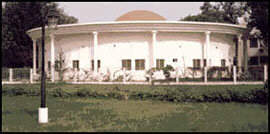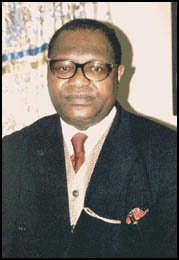 GOVERNMENTS PROSPECTS GOVERNMENTS PROSPECTS |
 GOOD GOVERNANCE, BIG BUSINESS GOOD GOVERNANCE, BIG BUSINESS |
A thriving economy founded on a successful private sector is linchpin to The Gambia's governance orientation. It appreciates that a government's only measure of credibility lies in its ability to translate the numeric of economic statistics into food on the peoples' tables, roofs on their heads and security in their minds, all these while guaranteeing a critical level of development commensurate with whatever is internationally apace.
With a population of 1.3 million and ticking, The Gambia operates a multiparty, parliamentary democracy committed to the rule of law and a liberal, free market economy. Gaining independence from 200 years of British colonial rule in 1965, it moved to become a republic 5 years later and has since remained a beacon of political stability (though not without its rough rides). The incumbent administration of President Yahya Jammeh was democratically elected in 1996 and he has defined his governance policy in the words of transparency and accountability. Jammeh had, two years earlier, come to power through a military putsch that toppled a government widely regarded as corrupt, redundant and lacking direction.
Inheriting an economy with a natural resource base of about nil, the foundations of which was built around taxes and tariffs, Jammeh's government quickly realised that the only way to achieve meaningful development and augment the country's tiny resource base would be through enhanced private sector development. It would also demand substantial foreign capital injection and the accompanying technological expertise as well as a well-developed human resource base and access into the international market.

The realisation has not faded. Since 1996, The Gambia has vigorously pursued a socio-economic policy committed to free enterprise and private sector development. The nerve of which is the inauguration of "The Gambia incorporated. Vision 2020" initiative, a policy document representing the blueprint designed to guide the country's progress into its envisioned future.
Encapsulated in it is the will and aspiration of the people and government of The Gambia to transform the country into a "financial centre, a tourist paradise, a trading, export-oriented agricultural and manufacturing nation, thriving on free market policies and a vibrant private sector. Sustained by a well-educated, trained, skill, healthy, self reliant and enterprising population."
| Launching the document, President Jammeh expressly threw the gauntlet to the private sector. "This concept is a recognition of the creative spirit of the private individual as a catalyst towards the achievement of the common good and of the limitation of government's role solely to the correction of market failures and provision of public services that is beyond the private sector," he said. "The government is formally reconfirming its pro-private sector stance, we call on the private sector to fully play its role and urge the public sector to adopt a more supportive attitude towards the private sector."

The statements were loud enough, and steps to materialise them have not been quieter. The state has constitutionally obliged itself to pursue a policy of encouraging and protecting investments, local and foreign. It gives explicit constitutional guarantee against nationalisation or expropriation of investments, maintains a liberal free market-economy with no ownership restrictions or foreign exchange controls. There is also an obvious commitment to improving the infrastructure base with the nation riding high on an excellent telecommunications system. It provides for a respect of the private sector in its constitution while constantly working to initiate policies to facilitate economic development.
In another effort to improve the country's credibility, a National Governance Council has been inaugurated. Its mandate would be to advice the central government, aid the democratic ideal and contribute to Gambia's diplomatic overtures. And it is as though The Gambia is trying to make up for its small size by being internationally active, it has promoted peace efforts in war-ravaged neighbouring countries and strengthened its credentials while chairing the United Nations' Security Council. "Our hope is to build a democratic nation run on the principles of good governance," reveals the Foreign Minister, Dr. M.L.Sedat Jobe. |

